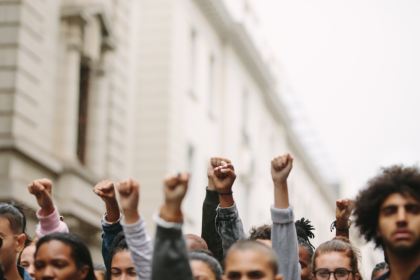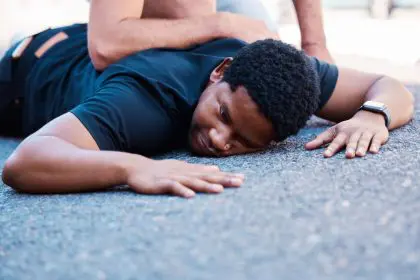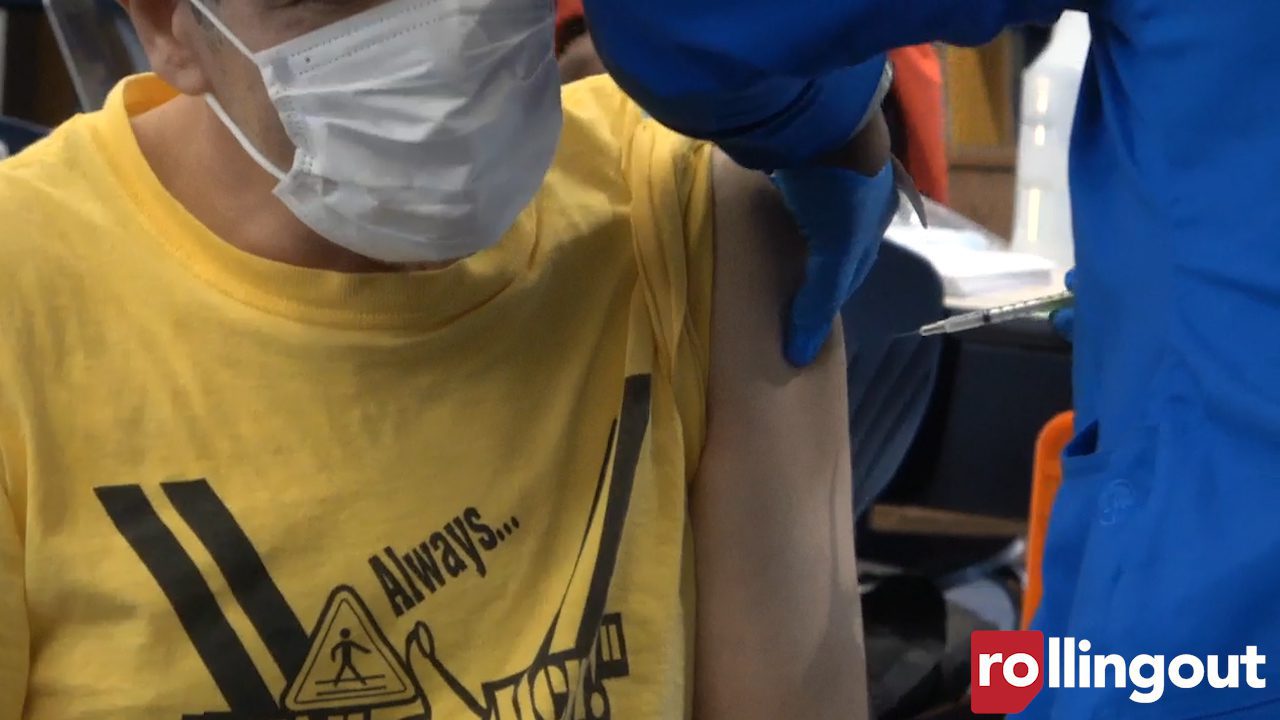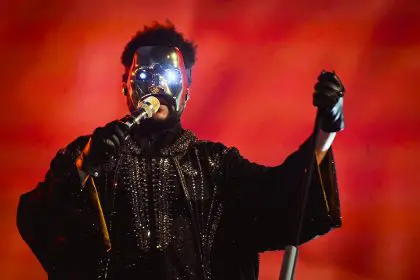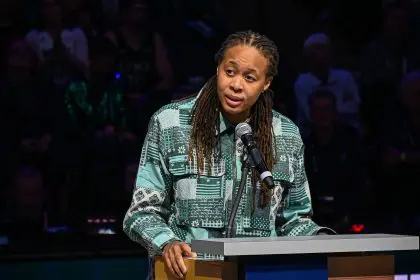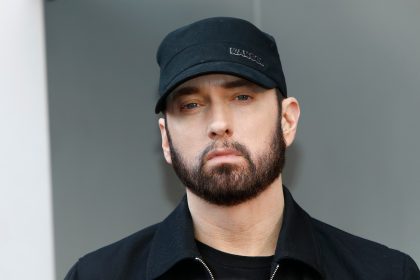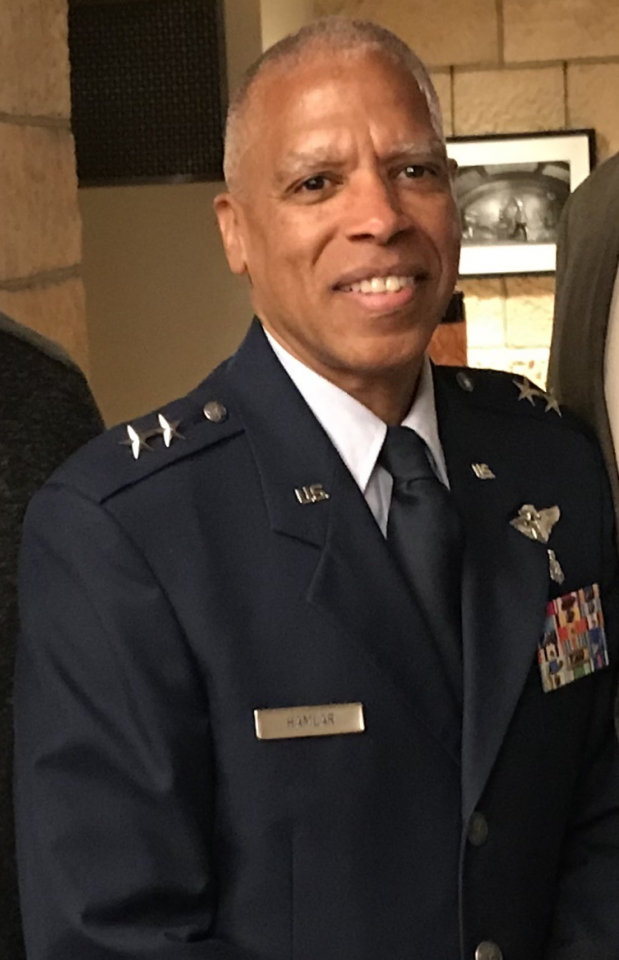
Meet Brigadier General David D. Hamlar Jr. He’s the first African American member of the military to achieve one-star rank in the Minnesota Air National Guard and is a renowned surgeon specializing in the reconstruction of skull deformities and brain tumors.
A graduate of Tufts University, Boston, with a Bachelor of Science in biology, and Howard University College of Dentistry as a National Health Service Corps scholarship recipient, he joined the Minnesota Air National Guard’s 133rd Airlift Wing as a traditional Guardsman and general practice physician in 1995. In his own practice, Hamlar has gifted hands to treat cleft lip and palate, craniofacial deformities and children born with misshapen skulls as well as traumatic injuries, which is crucial in the care of our troops at both home and abroad.
General Hamlar has served in support of Operation Desert Shield and Desert Storm, and was deployed in support of Operation Enduring Freedom, Operation Iraqi Freedom, and numerous military humanitarian efforts around the world.
Hamlar was recently appointed by Gov. Mark Dayton to serve as the leader of the Minnesota National Guard. The adjutant general position is a seven-year term.
Here’s what he has to say.
What is the importance of today’s ceremony?
It wasn’t a personal thing. What I wanted to do today is demonstrate that there are able persons of color available to be part of the Minnesota National Guard.
How important is that message to relay to the state of Minnesota?
Minnesota has traditionally recruited from certain segments of society and certain areas. Those areas are drying up, so unless you recruit to all of Minnesota, you’re not going to have a National Guard in the future.
So how important is inclusion for the National Guard?
You won’t have a National Guard if you don’t at least make an effort to recruit those in neighborhoods you don’t normally recruit to. A lot of the National Guard is either nepotism, people you know, people you’ve served with, people in your neighborhood so you have to extend yourself beyond the usual places and just go to places you’re uncomfortable with. I’d call it putting yourself in uncomfortable situations.
What are some things you have been implementing to increase these numbers?
On the Air Force side, we have a base. We have a big gate around our facility and our recruiters sit behind that big gate and let people come to them. What I did was pushed them beyond that gate into the neighborhoods. Some of those neighborhoods were comfortable for them, and some of those neighborhoods weren’t so comfortable. We kind of took the road show and went out and started going out to the community to recruit in our Hispanic, our African American, our Hmong and our Laotian communities.
How successful has that campaign been once you pushed them out of their comfort zone?
So, when we were first starting, our underrepresented in the Minnesota National Guard was somewhere between 1-2%. When I left or retired last year, we were at 7-8%. So, it was a six-fold increase. At the same time, can we do better? That’s what I was talking about today. We can always do better. In Minnesota, when you’re looking at populations, there’s not a lot of us here. Now if you’re in Atlanta or DC, you have at least more of a pool to recruit from. So, I have to hit on 100% on whoever I go after.
I think your point of access, and I think the other thing is there is a generational, maybe two generational gap that doesn’t have the same appreciation, and they really don’t see the value.
So that’s where history is important. That’s why I pointed out Mamie Singleton, a retired police officer – African American, and she’s giving flying lessons or arranging flying lessons for those who don’t normally even see an airplane. So, we had a Tuskegee Airmen come here the other day. When he started out, they said not only will you not fly this airplane, but we won’t even let you wash this airplane.
Why is that?
Well think of it. 1942. 1945. What was our main purpose? We were service in the Guard. We did the logistical maneuvering, taking supplies so to find someone who would be put in a place of possible power was impossible. That’s why it’s important to not only identify folks who will serve but putting them in a position at the next level, where they can actually be leaders. If you think about it, if you look at the Army, the folks who become leaders are those who have positions of authority. Pilots, logisticians, commanders in the field, not your lack of a better word, service members, who provide those services. Same thing on the air side. If we can identify folks, and that’s why I think I was identified. I just happen to be a physician, so as a physician, rank meant I was going to get rank anyway. I came in as a major. Now they booted my down to Lieutenant when I changed over from a Navy equivalent. I had my hardship. I stayed a Major for eight years. There was nobody promoting me, so I just stuck with it and finally, they had to do something. Now, I wasn’t complaining, I wasn’t doing those things, so I just had persistence. I’ll wait you and out and that just happened. And here in the last five years, I’ve been promoted twice.
Based upon the promotion, do you see that being a problem with minorities – being able to go up in the rank based upon their service? You communicated that you changed from the Navy to the Air Force.
Oh no, that was one of, I think, there was a legitimate reason for that because I was leaving a commission in the civil service to really a military service. That was legit. But the eight years as a major, that was purposeful and I had to overcome that.
Give three reasons that you would suggest a young African American, Hispanic male or female should consider the National Guard.
Number 1, there’s money for school. Number 2, you learn a trade. Number 3, you may see some offshoots that you hadn’t thought of before. There’s a possibility of reality of having money to go to school. There’s reality with learning a trade that you can use once you’re done. And then, there’s the possibility of dreaming. And if you can see it, you can taste it, then maybe you can go for it. Those are the top 3.
For people who don’t know, what are some of the career skillsets that you learn or options for the National Guard?
Well, what’s the biggest thing right now? It’s all cyber. We will take a recruit, put him through an IT course or cyber course, we need because we’re deathly short of cyber experts. And to me, the millennials today are perfect with it because they live, they’ve grown up with it. We’ll put you through school and now you can actually be a leader in that field. Cyber is number 1. Number 2 is just basic leadership. We have courses that go along with how do you respect your fellow man. How do you be examples to those coming up – in other words, paying forward. Then finally, if you think about it, if you have those skills, you set yourself up for success sort of like I did. Not that I’m in actively anymore, but now I could command. In the air force, it’s more like a wing or a squadron. I can command those without a problem. I feel I had those success stories.
Name five career choices that the future is going to need that you can get that skill set in the National Guard.
Basically, let’s look at what kind of schooling you go through. You go through Airmen basic. In Airmen basic, you learn basic leadership skills. That’ll let your run some type of – you can be part of some type of fast food chain. You could be part of a start-up company. That makes you a worker. Number 2, if you look at cyber, logistics or if you want to go into the medical field, which I’m in. If you want to be a med technician. Those are jobs that are highly desired right now in the marketplace. Right now, if you look at number 1 jobs, I think they’re in health. You can get an education from Air Force or the Army and have the availability to now market that outside the military in the civilian sector. Cyber – I also go back to, because that’s what we’re looking for. If you want to be an airline pilot. What if you went to flight training? And that’s what a lot of people do. Right now, we have a shortage of pilots and then we have a shortage of mechanics. There’s one air frame called the J-35. That air force jet is ready to go but right now, we don’t have enough pilots. We don’t have enough mechanics to take care of them. As a flight instructor, which takes a little time to get to, you would be manning and controlling that entry point for them. As a mechanic, you’re taking care of aircraft that that are way beyond what you will see on the streets, as far as cars and trucks and everything else. That’s a natural offshoot to me.
Five key leaderships skills for any person to transfer between life and service.
First of all, knowing your limitations. So know that if there’s something you have to work on, you’re going to need to go to school. You’re going to go in reinforce those. Knowing your limitations. Number 2, never taking no for an answer. Say you’re having your chain of command and someone says you can’t do this, making sure that you know that the sky is the limit. You have the ability to go beyond where the resources go to. Number 3, if you face a problem, make sure you do your homework. If there’s something that you’re missing, either rely or delegate it out but have the resources before you go and try to achieve that objective. If you look at it from a military standpoint, number1, you have to know where you’re going, how to get there, what you have to do to get there, and then finally, if you’re going to go there, who are you going to bring with you. Those are some of the leadership skills I’ve used.
Three of your most cherished moments in making changes in the lives of people that you’ve led.
One of the things that I really think is important is that as a leader you don’t set yourself up for success. You set your people up for success, making sure they share in any success that goes on. I was a commander of a medical group; we won award after award and it wasn’t my doing. I just made sure that the people recognized for that were my subordinates because that made our organization, so sharing in whatever successes that you have. Second of all, not condemning someone for something you didn’t set them up for. In other words, it’s your leadership skills that get someone somewhere. It’s your knowledge that allows people to [win] – if there’s a shortcoming, you don’t go and blame the individual, you blame yourself. What that means is you’re taking responsibility. And number three, if you achieve success, if you take the next ladder, you bring them with you. Instead of them staying back behind, your measure of success is are they now prepared to do what you did before.

